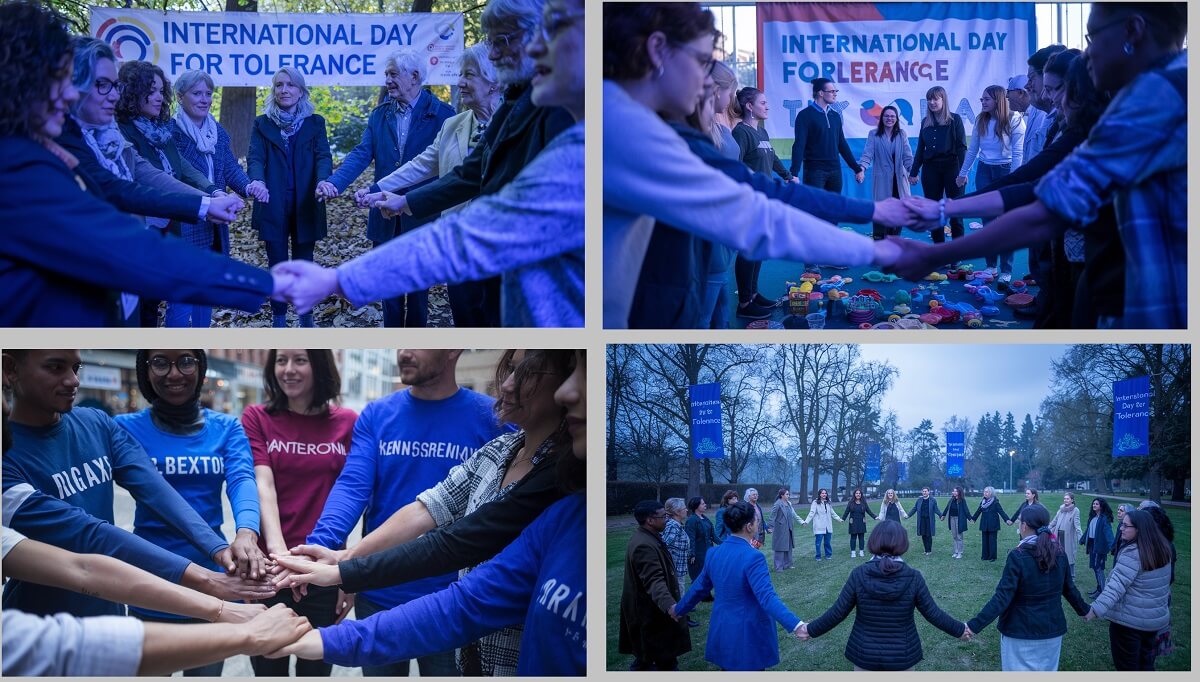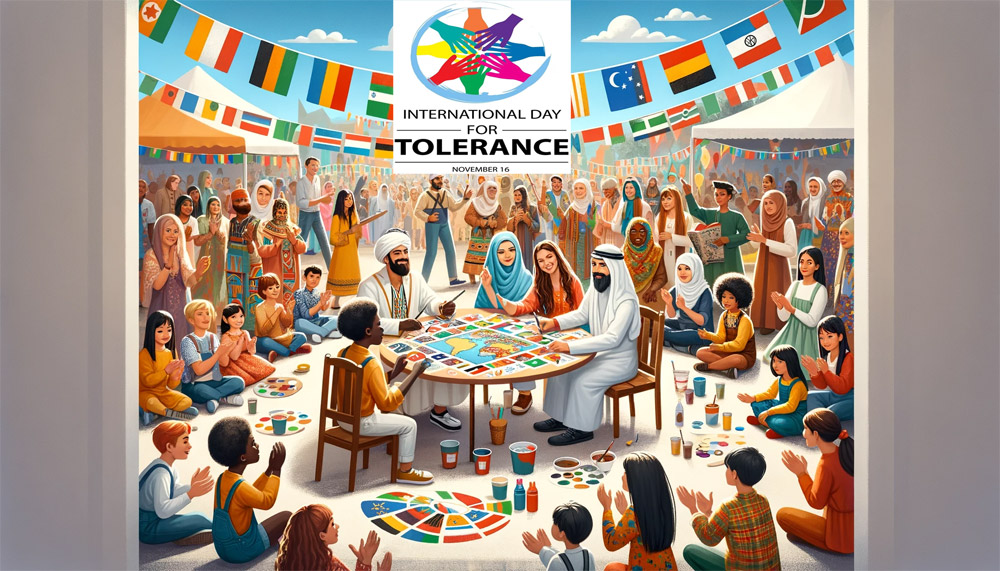
International Day for Tolerance: Promoting Global Harmony
Have you ever paused to think about how a simple act of understanding could change someone’s life? In a world where differences often spark conflict instead of connection, tolerance emerges as a fundamental value for peaceful coexistence.
On November 16, we observe the International Day for Tolerance, a day dedicated to promoting respect, understanding, and appreciation of our communities' rich diversity.
This article explores the origins and significance of this global observance, shares practical steps for fostering tolerance, and offers real-life examples to inspire action. Together, we’ll discover how embracing diversity can lead to a more harmonious and inclusive society.
What is the International Day for Tolerance?
The International Day for Tolerance was established in 1995 by the United Nations, following UNESCO’s adoption of the Declaration of Principles on Tolerance. This declaration defined tolerance as more than passive acceptance—it’s an active attitude of understanding and respect for others, especially those who differ in opinions, beliefs, or ways of life.
On this day, the UN emphasized the need to address the growing challenges of intolerance, prejudice, and violence globally. Its purpose is to remind us of the importance of diversity and each individual's role in fostering peaceful coexistence.

Why is Tolerance Important?
Strengthening Communities
Tolerance is the glue that binds diverse communities together. People who accept and respect differences create a sense of belonging and unity. For instance, multicultural cities like Toronto and Singapore thrive because their residents celebrate diversity rather than fear it. Businesses in these cities are more innovative, and neighborhoods feel safer, thanks to shared respect.
Reducing Conflicts
History shows that intolerance often leads to conflicts due to racial prejudice, religious differences, or cultural misunderstandings. According to UNESCO, over 70% of global conflicts stem from a lack of tolerance. By promoting respect and understanding, we can reduce violence and foster peace.
How to Celebrate the International Day for Tolerance
In Schools
Schools are essential in nurturing and shaping young minds. Educators can arrange workshops or storytelling activities that introduce students to various cultures, traditions, and viewpoints, fostering an appreciation for diversity. Activities like role-playing or debates on inclusion can also encourage empathy and understanding.
In Workplaces
Workplaces can celebrate this day by hosting diversity training programs or team-building exercises. Simple gestures like sharing stories from employees’ diverse backgrounds can spark conversations and build stronger teams.
In Communities
Communities can organize events like cultural fairs, interfaith dialogues, or neighborhood potlucks. These activities allow people to interact and learn from one another, fostering deeper connections.
Individual Efforts
Celebration doesn’t have to be grand. You can:
-
Watch a film or read a book about a culture different from your own.
-
Volunteer for organizations promoting inclusion.
-
Have an open and respectful conversation with someone whose views differ from yours.
Challenges in Fostering Tolerance
While tolerance is vital for peaceful societies, achieving it isn’t without challenges.
Rising Intolerance
In recent years, hate speech and xenophobia have surged, often fueled by misinformation and divisive rhetoric online. This rising intolerance threatens social harmony, making efforts like the International Day for Tolerance more crucial than ever.
Barriers to Inclusion
Many individuals grow up in homogenous environments, limiting their exposure to diversity. Cultural stereotypes and biases can further hinder understanding. Overcoming these barriers requires conscious efforts, such as education and exposure to different cultures and perspectives.
Practical Steps to Promote Tolerance
For Individuals
-
Practice Empathy: Make an effort to see things from someone else’s point of view. Ask yourself, “How would I feel in their place?”
-
Challenge Stereotypes: When you encounter a stereotype, question its validity and encourage others to do the same.
-
Celebrate Diversity: Attend events or engage in activities that showcase different cultures, like festivals or cooking classes.
For Organizations
-
Adopt Inclusive Policies: Ensure that everyone feels valued regardless of their background.
-
Provide Training: Provide employees with training focused on fostering diversity and inclusion.
-
Create Safe Spaces: Promote open conversations where individuals feel safe sharing their experiences without worrying about judgment.
Real-Life Examples of Tolerance in Action
Rwanda’s Reconciliation Efforts
After the 1994 genocide, Rwanda focused on reconciliation by promoting education on tolerance and unity. Programs like "Peace and Values Education" in schools teach students the importance of coexistence and mutual respect.
Multicultural Festivals in Canada
Canada’s multicultural festivals celebrate the country’s diversity, providing platforms for people from different backgrounds to share their traditions. These events promote understanding and build lasting bonds among attendees.
Interfaith Initiatives in India
In cities like Mumbai, interfaith groups organize dialogues and activities to reduce religious tensions. Their efforts have led to better understanding and collaboration among communities.
Why UNESCO’s Role Matters
UNESCO’s Declaration of Principles on Tolerance is a blueprint for promoting tolerance worldwide. Its educational programs and campaigns aim to address ignorance and fear, the root causes of intolerance. UNESCO also works with governments and organizations to integrate tolerance education into school curriculums, ensuring future generations value diversity.
Conclusion
The International Day for Tolerance reminds us that embracing differences isn’t just a moral obligation—it’s a path to building better relationships, communities, and a more peaceful world. By celebrating diversity, educating ourselves, and fostering empathy, we can each contribute to a culture of tolerance.
As you reflect on the role of tolerance in your life, ask yourself: How can I make my community more inclusive? Your efforts can inspire change through a kind gesture, an open conversation, or simply listening with an open mind.
FAQs
1. What is the International Day for Tolerance?
November 16 is the International Day for Tolerance, which promotes worldwide understanding, respect, and appreciation for diversity.
2. Why is tolerance essential?
Tolerance prevents conflicts, fosters stronger communities, and upholds human rights by encouraging mutual respect and understanding.
3. How can schools promote tolerance?
Schools can host workshops, storytelling sessions, or cultural exchange programs to teach students the value of diversity and empathy.
4. What are some examples of tolerance in action?
Examples include Rwanda’s reconciliation programs, multicultural festivals in Canada, and interfaith dialogues in India.
5. How does UNESCO support tolerance?
UNESCO promotes tolerance through educational programs, campaigns, and global collaborations with governments and organizations.
International Days and Weeks




